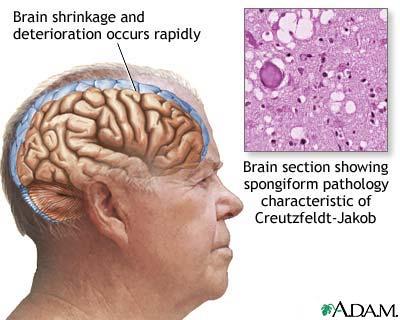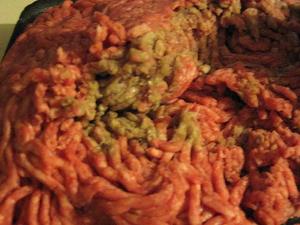In particular this same research revealed that for men in the age group of forty-five to fifty-four the risk for heart disease for meat eaters compared to vegetarians is 400 percent greater. This kind of information begs the question,why isn’t the general public aware of this health risk? It is general public knowledge that smoking over time can lead to cancer and that cancer can lead to premature death. So why doesn’t the general public know about the risks involved in eating meat?
 The
medical industry should be telling people directly what causes a heart
attack or a stroke. Health practitioners say that in many cases it is
due to high blood pressure or clogged arteries but, these conditions are
not the cause. These conditions are the effects of the original cause
of consuming too many animal fats or fried foods over a period of time.
High blood pressure in most cases is due to the build-up of cholesterol
on the arterial walls.
The
medical industry should be telling people directly what causes a heart
attack or a stroke. Health practitioners say that in many cases it is
due to high blood pressure or clogged arteries but, these conditions are
not the cause. These conditions are the effects of the original cause
of consuming too many animal fats or fried foods over a period of time.
High blood pressure in most cases is due to the build-up of cholesterol
on the arterial walls. Imagine a garden hose that has been sitting out in the dirt. Inside the hose dirt begins to build-up over time. Soon after you go to turn the water on, the water does not pass freely through the hose because of the build-up of dirt that has accumulated. This is basically what happens when the blood tries to pass through arteries that have cholesterol build-up except that cholesterol build up is not as easy to get rid of as dirt build-up. What is cholesterol? It is fat, also known as a lipid. Clogged arteries occur when cholesterol builds up so much that it actually blocks the passage of blood flow through the artery. Once the blood supply is cut off from a part of the heart or the brain, a heart attack or stroke occurs. The cause of diet induced unhealthy cholesterol,according to Health.com is from eating too many saturated fats, which are abundant in beef, pork, veal, milk, and cheese. (The body also produces its own cholesterol)
Are there benefits to being a vegetarian? As my previous medical terminology instructor gleefully told us, “Vegetarians don’t have heart attacks.” Well, unfortunately this statement is not100% accurate. A vegetarian who has a diet rich in saturated fats, and fried foods (like French fries) can also, over time, have a heart attack. Saturated fats are those fats that are solid at room temperature. Examples are vegetable shortening, butter, cheese, lard and ghee(clarified butter). Ghee although it has some vitamins, it is still 45% saturated fat, and 12% cholesterol according to product labels. Following a vegetarian diet is beneficial for people and animals too.
The negative effects of eating meat are not limited to just cardiovascular disorders. Eating meat over a long period of time can also affect brain function. A Dutch study revealed that cognitive function in males aged 69-89 suggests that a high intake of omega-6, which is found in red meat is positively associated with cognitive impairment. Cholesterol that accumulates in the arteries around the heart also accumulates in the blood vessels inside the brain. It is possible that the extra fat accumulation in the brain slows down the thinking process.
 Speaking
of brains, people may not want to talk about it, but Mad Cow Disease,
which affects the cow’s brain, probably has not disappeared off the
planet. This disease which was discovered in cows is very similar to
the disease that was found in sheep as early as the 1700’s and is known
as “scrapie”.
Postmortem examination of a sheep’s brain which has died from this
disease reveals characteristic spongy, hole-riddled areas of the brain.
In other words the disease eats parts of the animal’s brain.
Speaking
of brains, people may not want to talk about it, but Mad Cow Disease,
which affects the cow’s brain, probably has not disappeared off the
planet. This disease which was discovered in cows is very similar to
the disease that was found in sheep as early as the 1700’s and is known
as “scrapie”.
Postmortem examination of a sheep’s brain which has died from this
disease reveals characteristic spongy, hole-riddled areas of the brain.
In other words the disease eats parts of the animal’s brain.Brain tissue from a cow sent in November of 1986 to Britain’s Central Veterinary Laboratory from an infected cow also revealed the same distinctive hole-riddled areas of the brain that had been seen in sheep infected with scrapie. According to the USDA scrapie is still around and it is in the United States. The question a person may ask is whether or not these diseases can be transmitted to humans, and the answer to this question is “yes.”
In humans this disease is known as variant Creutzfeldt-Jakob disease. It is a degenerative disease that affects the brain and neurological system. According to JAMA (Journal of the American Medical Association), in the United Kingdom, new variant Creutzfeldt-Jakob disease probably resulted from the ingestion of BSE-contaminated processed beef. BSE stands for Bovine Spongiform Encephalopathy also, known as Mad Cow Disease.
 On
December 23, 2003, the U.S. Department of Agriculture (USDA) made a
preliminary diagnosis of Bovine Spongiform Encephalopathy (BSE) from a
post-mortem examination of a single "downer" (disabled) dairy cow in
Washington State. On December 25, this diagnosis was confirmed by the
BSE International Reference Laboratory in Weybridge, England.
On
December 23, 2003, the U.S. Department of Agriculture (USDA) made a
preliminary diagnosis of Bovine Spongiform Encephalopathy (BSE) from a
post-mortem examination of a single "downer" (disabled) dairy cow in
Washington State. On December 25, this diagnosis was confirmed by the
BSE International Reference Laboratory in Weybridge, England. The end result of contracting variant Creutzfeldt-Jakob disease is death, and the median age at death in the United States is 28 years for patients with vCJD. People may argue that BSE has not been found recently in the United States but, the truth is that cows with BSE do not begin to show signs of illness until after 5 years of age. In the United States cows are usually slaughtered before they reach this age. According to the Organic Consumers Organization in January 2004 the United States was violating all four concrete recommendations laid down by the World Health Organization to prevent the spread of BSE into the human population.
 Beef
is not the only meat to avoid. If you ask anyone what is the most
toxic meat,most people would probably say pork. This has been true for
some time because pigs have been famous for carrying viruses, parasites,
and worms. Recently however, chicken has been dubbed the most toxic
meat. According to PETA (People for the Ethical Treatment of Animals)
chickens are being dosed with antibiotics containing arsenic, along with
other animals which are being raised for human consumption.
Roxarsone, an antibiotic commonly used on factory farms, contains
significant amounts of the most carcinogenic form of arsenic. USDA
researchers have found that “eating 2 ounces of chicken per day—the
equivalent of a third to a half of a boneless breast—exposes a consumer
to 3 to 5 micrograms of inorganic arsenic..."Daily exposure to low doses
of arsenic can dramatically increase the risk of cancer, dementia,
neurological problems, and other ailments in humans.
Beef
is not the only meat to avoid. If you ask anyone what is the most
toxic meat,most people would probably say pork. This has been true for
some time because pigs have been famous for carrying viruses, parasites,
and worms. Recently however, chicken has been dubbed the most toxic
meat. According to PETA (People for the Ethical Treatment of Animals)
chickens are being dosed with antibiotics containing arsenic, along with
other animals which are being raised for human consumption.
Roxarsone, an antibiotic commonly used on factory farms, contains
significant amounts of the most carcinogenic form of arsenic. USDA
researchers have found that “eating 2 ounces of chicken per day—the
equivalent of a third to a half of a boneless breast—exposes a consumer
to 3 to 5 micrograms of inorganic arsenic..."Daily exposure to low doses
of arsenic can dramatically increase the risk of cancer, dementia,
neurological problems, and other ailments in humans. Unfortunately, antibiotics are not the only things affecting the toxicity of meat. Dioxins which are chemicals in our environment get absorbed into the flesh of animals, which are later consumed by humans. According to leading scientists and the Environmental Protection Agency (EPA), nearly 95 percent of dioxin exposure comes in the concentrated form of meat, fish, and dairy products. Dioxins bind to a cell and modifies its functioning, potentially causing a wide range of effects including cancer,depressed immune response, nervous system disorders, miscarriages, and birth deformities. People in general are aware that animals that are raised for human consumption are being given hormones and antibiotics but it does not seem apparent that the general population is aware of the effects of these antibiotics or dioxins and what effects they will have upon them. Some people are aware and that is why they opt to eat only “grass fed” cows or “free-range” chickens. Unfortunately, even these animals are not safe to eat. The fact is that the risk of getting colon cancer is increased by individuals whose diets are low in fiber, high in fat and animal protein.
 Animals
are not good for people to ingest. Shortly after an animal is
slaughtered it begins the decaying process and this is accomplished by
enzymes within the animal’s body. These enzymes of decay are slowed
down somewhat by preservatives injected into the meat but, the process
of decay (rotting) continues nonetheless.
Animals
are not good for people to ingest. Shortly after an animal is
slaughtered it begins the decaying process and this is accomplished by
enzymes within the animal’s body. These enzymes of decay are slowed
down somewhat by preservatives injected into the meat but, the process
of decay (rotting) continues nonetheless. When people eat meat, they are ingesting these very same decaying enzymes into their own bodies. One can only ponder what effects these enzymes of decay are having upon the living human body. If people understood the effects that eating meat has upon their bodies and minds, no doubt the consumption of meat would decrease greatly in this country and around the world.
Source











